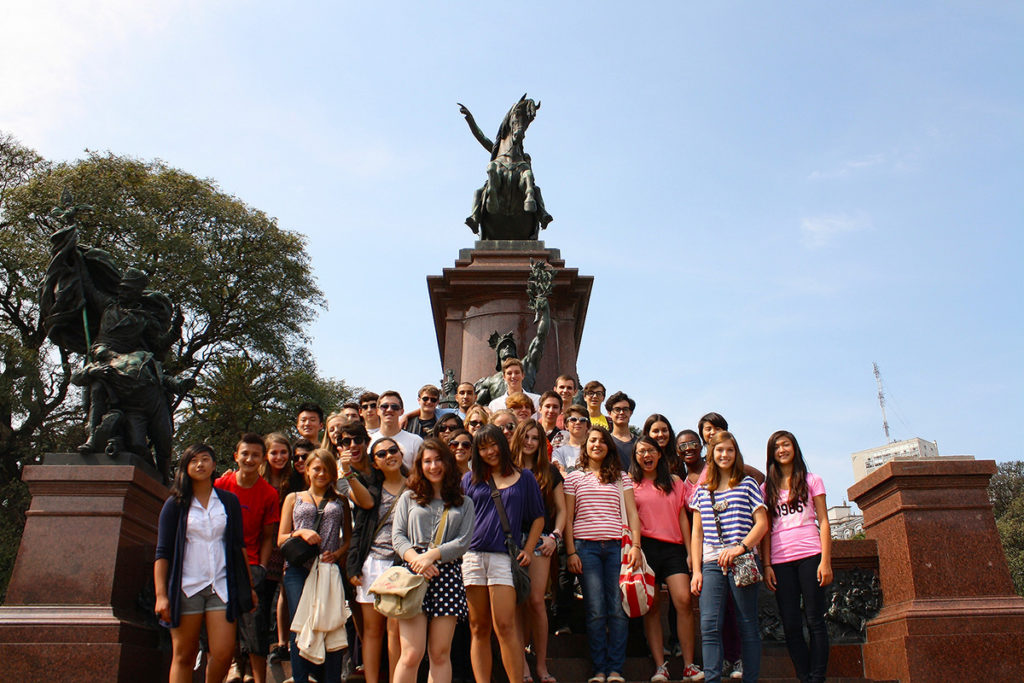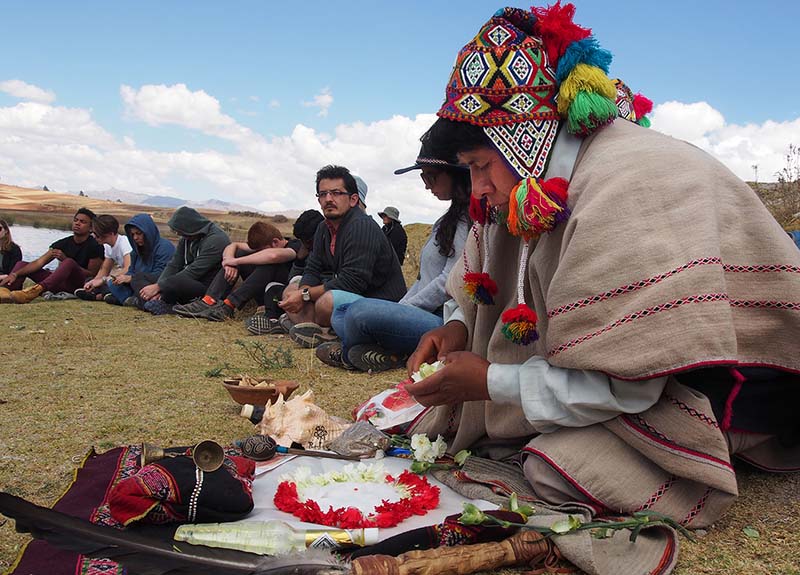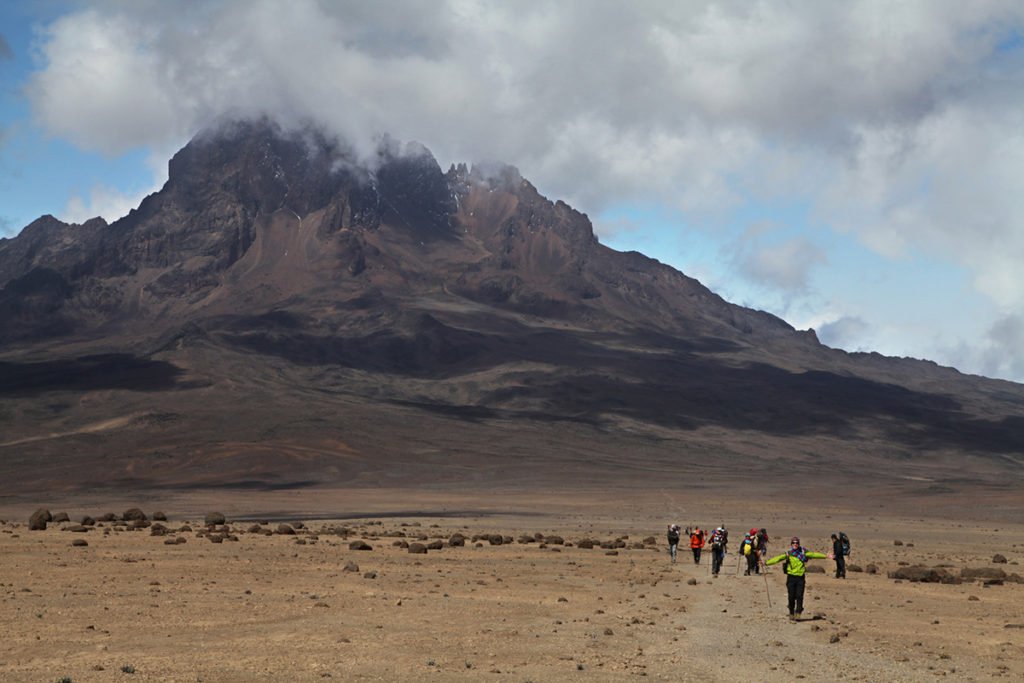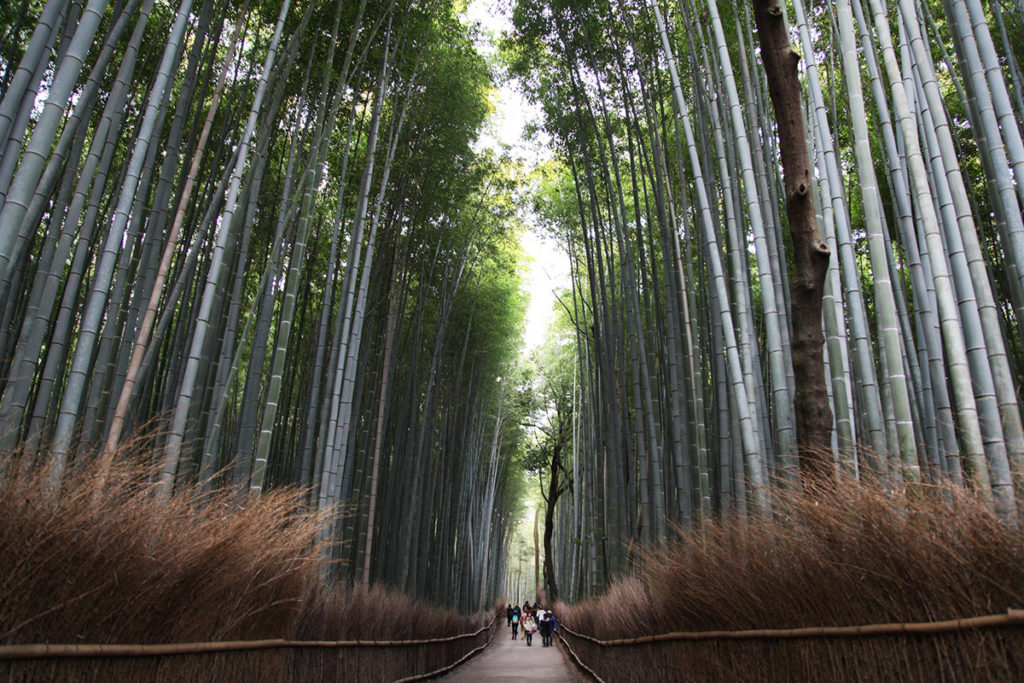Are you interested in applying to THINK Global School but aren’t quite sure if it’s right for you? That’s OK! It’s a decision that shouldn’t be taken lightly. To help you in your application process, we’ve put together a list of five things we feel every applicant to THINK Global School should know. We hope you find them helpful. 1) You’ll gain an education by living and learning in the...
Read MoreI often hear from others that I have the “craaaaaziest” job. “You get paid,” they ask, “to travel the world?”
And it’s true. I get paid to travel the world.
I’m a teacher at THINK Global School (TGS), the world’s first traveling high school, and I have traveled to 15+ countries in the last five years with a small army of international students. When people initially discover this about me, a thunderstorm of questions ensues.
“But, where do you live?” “What do you eat?” “Where do the kids stay?” and “Wait… The kids actually travel with you?” And on and on. These questions are natural and expected after the processing of such a complex, logistical undertaking in education. I mean, I’m still asking myself what the hell it is I do.
Arriving in Argentina

TGS in Buenos Aires, Argentina. Photo by Lindsay Clark
I arrived in Buenos Aires five years ago, eager and excited for this wild, new teaching venture. My co-workers and I became friends with some local Argentines who introduced us to maté, empanadas, milanesa, and lumfardo. We quickly learned that the easiest way to keep friends in Argentina was to either become a River Plate or La Boca football fan, or to make quick and dirty jabs at ex-president Cristina Fernández de Kirchner.
When our newfound amigos discovered we were teachers, we explained our traveling operation to them (in Spanglish of course). They all sat nodding, most of whom had never been on an airplane before.
The Argentines, unlike all the others, had one question and one question only.
“¿Por qué?”
“¿Por qué qué?” I asked. “Why what?”
“Why do you travel?”
…
And it’s a valid question… Why do we travel? Why has our founder, our board, our staff and our learning community invested so much into this nomadic lifestyle?
And why have I?

A Q’ero shaman prepares a Pachamama blessing. Photo by TGS Media Specialist Jen Buchanan
While we can all relate to the sense of wonder we experience when discovering new terrains, museums and natural heritage sites, there seems to be a social phenomenon that manifests through travel which words can’t quite capture. In Urubamba, the moto tuk tuks idle along dusty side alleys. In Hiroshima, uniformed business professionals wait silently at a busy street crossing. In Kolkata, a chai wallah stirs tea behind a gas stove. In Tanzania, a child stares at me curiously, finger popped under curled lip. There are teachables happening all around us which contribute to our greater understanding of the world, yet most of these defy adequate description.
TGS alumni Yada Pruksachatkun reflects, “Learning while traveling has made me realize the span of what is possible- when you’ve climbed the tops of Africa’s peaks and talked with the world’s most esteemed scientists as a teenager, your definition of ‘impossible’ changes.”

The Class of 2014 climbs Mt. Kilimanjaro. Photo by Lindsay Clark
As a teacher, this is where I want to preserve time, to freeze frame each transformative moment my students experience abroad. No statistic can wear the curious eyes of my students and no number can witness the evolution in thought they undergo. Their understanding of what is ‘possible’ evolves, and as fear disintegrates, wonder emerges.
Whether our students are discoursing with Prime Minister Tshering Tobgay about Gross National Happiness (GNH) policies in Bhutan or analyzing world statistics with Hans Rosling in Sweden, they are constantly building private narratives that stretch beyond the comforts of their own home. Beyond our “classroom,” every seemingly insignificant stranger they meet along the way –the old, Peruvian woman who bakes fresh bread on Mondays in her home cafe, the Sicilian hiking guide who helps navigate the path up Mount Stromboli, every Athenian taxi driver with an opinion– adds a new chapter to their life’s book of learning. Even observing a fish market stir to life at the crack of dawn in the middle of nowhere somehow makes one feel everywhere.
As magical as these revelations sound in theory, there is concrete, supporting evidence which shows that travel has a lasting impact on the worldview of nomadic learners. The Institute for the International Education of Students surveyed 3,500 alumni from their study abroad programs to find that travel “positively and unequivocally influences the career path, worldview and self-confidence of students.”
Additionally, “98 percent of respondents said that study abroad helped them to better understand their own cultural values and biases” while reinforcing in each student a more sophisticated way of considering international perspectives. While this statistic is persuasive in demonstrating how travel enhances students’ cultural understanding, it takes bearing witness to these teachable moments abroad to truly appreciate the depth in which students evolve.
Why not travel and learn?
Maybe a better question to ask is, “Why not travel and learn?” Students, once detached from familiar material possessions and social constructs, start building collaborative stories composed of the stories of others. These story collections free us from being tethered to one perceived reality and allow us to deeply understand another. These story collections insist their protagonist progresses beyond stagnation and demands an evolution of character, thought, and action.
While most are comfortable cultivating a community and learning locally, which are equally as valuable as traveling abroad, a sedentary life seems to quiet the interest for self-reflection as a national. “In a funny way, nothing makes you feel more like a native of your own country than to live where nearly everyone is not,” says Bill Bryson, best-selling travel author. TGS alumni, Liisa Toomus, recognizes this as well. “By leaving Sweden thousands of miles behind with a number of international staff and students,” Liisa says, “I’ve come to gain an appreciation for my own country, and learned to understand myself and my own culture, in a way I never anticipated I would.”
It doesn’t even seem to matter where we travel, but instead the attitude with which we travel –as we channel a pioneer spirit, as we consider conquest, colonization, ingenuity, ethnocentrism, self-reliance, endurance and grit– is it possible to challenge, to question, to confront our own place in the world without ever stepping outside of it?
After teaching and traveling for five years with this tribe of unconventional educators and learners, I dare to respond with a resounding no. I am not suggesting that all students need travel in their lives, but I am suggesting that the effects of exploration are advantageous, ever-lasting and disarming. Travel pushes and pulls us. Travel demands things of us. Travel makes us see outside of ourselves.

TGS enters Kyoto’s bamboo forest. Photo by Lindsay Clark
Anthony Bourdain, author and host of Parts Unknown, says, “Travel changes you. As you move through this life and this world you change things slightly, you leave marks behind, however small. And in return, life — and travel — leaves marks on you. Most of the time, those marks — on your body or on your heart — are beautiful. Often, though, they hurt.”
As travelers, we make big and small sacrifices here and there. Living out of a suitcase can get old fast, especially when you’re charged extra per overweight kilo. Non-stop traveling means uncomfortable beds, the occasional Delhi belly (even when you are nowhere near Delhi), some missed trains and planes, and some homesickness. Traveling often means you can’t make it to your friend’s wedding or your nephew’s graduation. It means you sometimes say hello only to say goodbye.
But I do it and I love it. I choose this lifestyle of learning on the road.
“Por qué?”
Porque. Travel makes us better. Travel allows for clarity in the face of ignorance, humbleness in the face of wisdom, grace in the face of tragedy. Travel advances us beyond our rudimentary understandings, where every journey begins as a modest curiosity, where every intrigue is a lesson in disguise, where every moment in time teaches us just a little bit more about who we are and why we are here.
-Breanna Reynolds, Humanities and IB Language and Literature teacher at THINK Global School
Bibliography
Sood, Sumedha. “The Statistics of Studying Abroad.” BBC. BBC, Sept.-Oct. 2012. Web. 28 Oct. 2016.